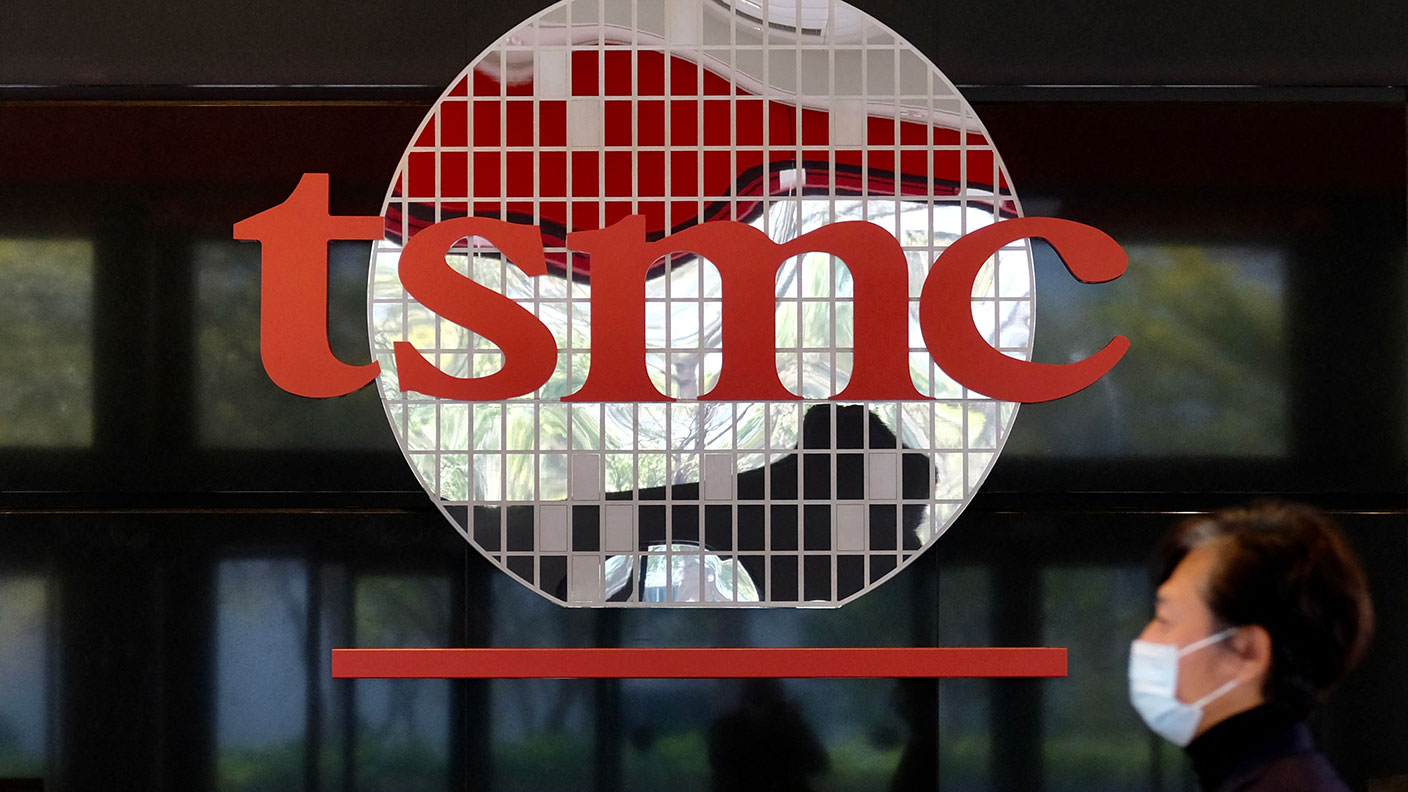Three stocks helping to fix the semiconductor shortage
Ewan Markson-Brown, CRUX Asset Management, picks three semiconductor manufacturers that can profit from digitalisation and supply shortages


Get the latest financial news, insights and expert analysis from our award-winning MoneyWeek team, to help you understand what really matters when it comes to your finances.
You are now subscribed
Your newsletter sign-up was successful
Want to add more newsletters?

Twice daily
MoneyWeek
Get the latest financial news, insights and expert analysis from our award-winning MoneyWeek team, to help you understand what really matters when it comes to your finances.

Four times a week
Look After My Bills
Sign up to our free money-saving newsletter, filled with the latest news and expert advice to help you find the best tips and deals for managing your bills. Start saving today!
We invest in exciting, fast-growing and innovative Asian companies. This means going on a journey in which we find and research companies in Asia (excluding Japan) that are trying to do something new and difficult and that are able to double sales and/or profit within three to five years.
Usually, such a rapid pace of growth also provides an outsized return, enabling the share prices of the companies we invest in potentially to double within three years and triple within five. We call this our growth-squared philosophy.
Currently, we believe there is a structural shift under way in semiconductors. On the demand side, the digitalisation of consumer electronics (smart products such as robotic vacuum cleaners), their connectivity to the internet and the soaring preference for electric over traditional petrol-fuelled vehicles, creates huge demand for these computer chips. And it comes not just from end users, but also from the communications networks that enable them to talk to each other, and the businesses that support them.
MoneyWeek
Subscribe to MoneyWeek today and get your first six magazine issues absolutely FREE

Sign up to Money Morning
Don't miss the latest investment and personal finances news, market analysis, plus money-saving tips with our free twice-daily newsletter
Don't miss the latest investment and personal finances news, market analysis, plus money-saving tips with our free twice-daily newsletter
On the supply side, the companies that make these chips are capacity constrained, due to the enormous amount of time and other resources required. These foundries sell as much as they make and can’t make enough semiconductors to satisfy demand – the ideal condition for pricing power – and profits. Here are three semiconductor businesses we hold that follow our growth-squared philosophy.
TSMC: the cutting edge of chip-making
Taiwan Semiconductor Manufacturing Company (NYSE: TSM, Taipei: 2330) is a $600bn (by market cap) behemoth. This Taiwanese manufacturer of computer chips is at the cutting edge of the semiconductor production process. It is outspending Intel, its closest Western rival, by at least $15bn this year to maintain its technological edge. Analysts are forecasting TSMC will achieve double-digit earnings growth every year for the next five years.
United Microelectronics: profiting from the capacity crunch
United Microelectronics Corporation (NYSE: UMC, Taipei: 2303) is another Taiwanese foundry. It’s much smaller than TSMC, with a market cap of $28bn. Think of it as a younger sibling that benefits from taking business that TSMC is unable to fulfil – much in the same way you would have to settle for the pub opposite if the initial one you wanted to go to is already full, except that this is a huge multi-billion-dollar factory filled with technologically sophisticated machinery operated by exceptionally qualified professionals.
SK Hynix: better memory for electric cars
Finally, across the East China Sea there’s SK Hynix (Seoul: 000660), a South Korean semiconductor play with a market cap of $72bn. SK Hynix operates in a different part of the market from TSMC and UMC – it is focused on making memory and storage, such as dynamic random access memory (DRAM) chips and flash memory.
In the same way that you would have the expectation of being able to use a car for many years and for it to work safely, the next generation of memory chips that go into electric cars will need to be a lot longer lasting, more reliable, and much more expensive than the memory chips that go into mobile phones. SK Hynix is expected to double its sales and quadruple its earnings per share in less than five years.
Get the latest financial news, insights and expert analysis from our award-winning MoneyWeek team, to help you understand what really matters when it comes to your finances.
Ewan Markson-Brown is a fund manager at CRUX Asset Management
-
 Last chance to invest in VCTs? Here's what you need to know
Last chance to invest in VCTs? Here's what you need to knowInvestors have pumped millions more into Venture Capital Trusts (VCTS) so far this tax year, but time is running out to take advantage of tax perks from them.
-
 ISA quiz: How much do you know about the tax wrapper?
ISA quiz: How much do you know about the tax wrapper?Quiz One of the most efficient ways to keep your savings or investments free from tax is by putting them in an Individual Savings Account (ISA). How much do you know about ISAs?
-
 Three key winners from the AI boom and beyond
Three key winners from the AI boom and beyondJames Harries of the Trojan Global Income Fund picks three promising stocks that transcend the hype of the AI boom
-
 RTX Corporation is a strong player in a growth market
RTX Corporation is a strong player in a growth marketRTX Corporation’s order backlog means investors can look forward to years of rising profits
-
 Profit from MSCI – the backbone of finance
Profit from MSCI – the backbone of financeAs an index provider, MSCI is a key part of the global financial system. Its shares look cheap
-
 'AI is the real deal – it will change our world in more ways than we can imagine'
'AI is the real deal – it will change our world in more ways than we can imagine'Interview Rob Arnott of Research Affiliates talks to Andrew Van Sickle about the AI bubble, the impact of tariffs on inflation and the outlook for gold and China
-
 Should investors join the rush for venture-capital trusts?
Should investors join the rush for venture-capital trusts?Opinion Investors hoping to buy into venture-capital trusts before the end of the tax year may need to move quickly, says David Prosser
-
 Food and drinks giants seek an image makeover – here's what they're doing
Food and drinks giants seek an image makeover – here's what they're doingThe global food and drink industry is having to change pace to retain its famous appeal for defensive investors. Who will be the winners?
-
 Barings Emerging Europe trust bounces back from Russia woes
Barings Emerging Europe trust bounces back from Russia woesBarings Emerging Europe trust has added the Middle East and Africa to its mandate, delivering a strong recovery, says Max King
-
 How a dovish Federal Reserve could affect you
How a dovish Federal Reserve could affect youTrump’s pick for the US Federal Reserve is not so much of a yes-man as his rival, but interest rates will still come down quickly, says Cris Sholto Heaton
